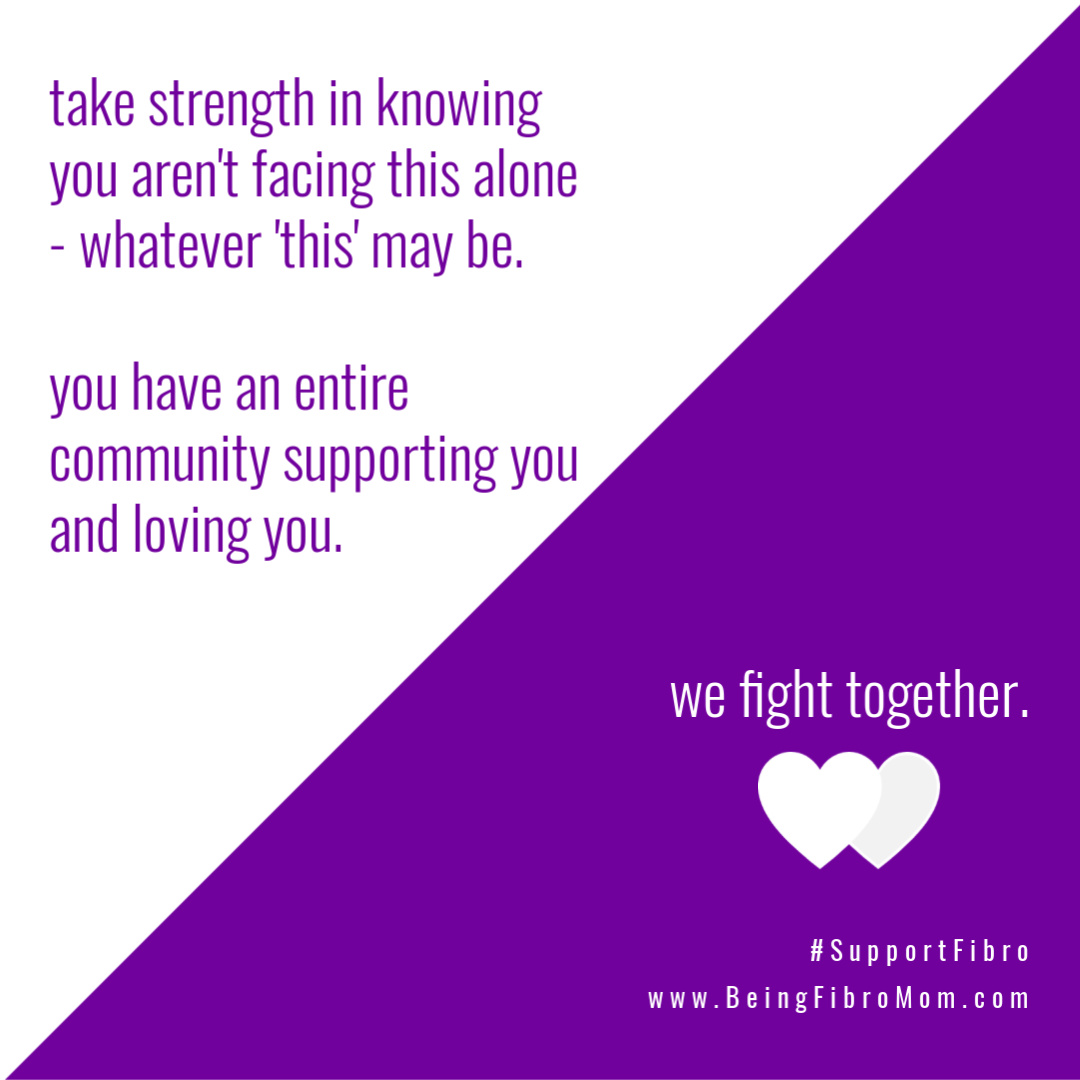One of the most challenging transitions of my life was my divorce. Another one was transitioning to single parenting with fibromyalgia. Since the onset of symptoms after the birth of my first child, I’ve had a partner to share the ups and downs of fibro. After the divorce, I had to learn how to do parenting as a single parent. And it was hard.
This article first appeared in The Fibromyalgia Magazine in April 2020.
A Day to Be Me
As I write this article, the sky is dark, and the clouds are full, threatening to open with a downpour of rain. The wind has a crispness to it, which doesn’t make you cold but makes you slightly shiver. A headache is on the cusp of forming and my body is aching with the barometric pressure changes.
But it’s a good day.
It’s a good day, not because the coffee has kicked in, and I’m excited to write again, but because it’s full of opportunities. Opportunities of what exactly? I don’t know. Positivity, I guess. The possibilities of getting tasks accomplished (or not; it doesn’t matter either), receiving good news at the doctor’s appointment later today, or wondering which movie we will be watching this evening.
Whatever the reason, it’s a good day because it’s a clear day. And by clear, I mean it’s not murky with negativity or dominated by another person. It’s a day that I can be me. I can make choices about what I do throughout the day for my kids and me. The kids and I can spend unbridled time together without fear of upsetting anyone.
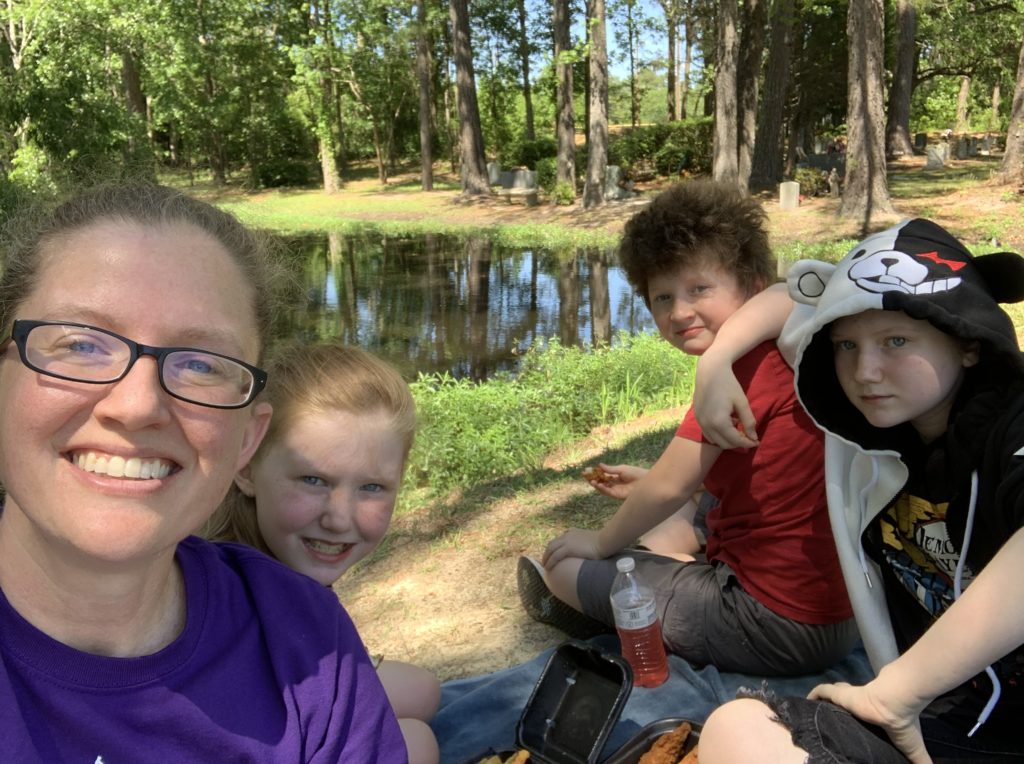
Soaking Up the Sunshine While It Lasts
I’ve had many of these ‘me’ days since my divorce last year, and I still haven’t gotten used to it. The reason I refer to them as ‘me’ days is that before the divorce, my daily activities were dominated by my ex-husband. Everything was done not to upset him but to please him. (You can read more about that situation in prior articles When Love Fades: Divorcing After 15 Years of Marriage and How Divorce Affects Fibromyalgia.)
Now, I can do things for my kids and me. It’s very freeing and makes even the darkest of rainy days good days. That’s not to say there aren’t bad days because there are bad days.
There are days when the guilt of the divorce is so consuming I have to constantly remind myself of the why of it to push through the day. When parenting is so overwhelming and exhausting, I don’t know how I will possibly do it all. When my body is riddled with so much stress, it triggers a flare lasting for days/weeks.
Those bad days are what make the good days sweeter and more appreciated. It’s like seeing a storm approaching and knowing the rain coming with it but not knowing how hard it will be or how long it will last. Realizing it makes you acutely aware of standing in the sunshine and soaking up its warmth while it lasts. It carries you through the storm to the other side.
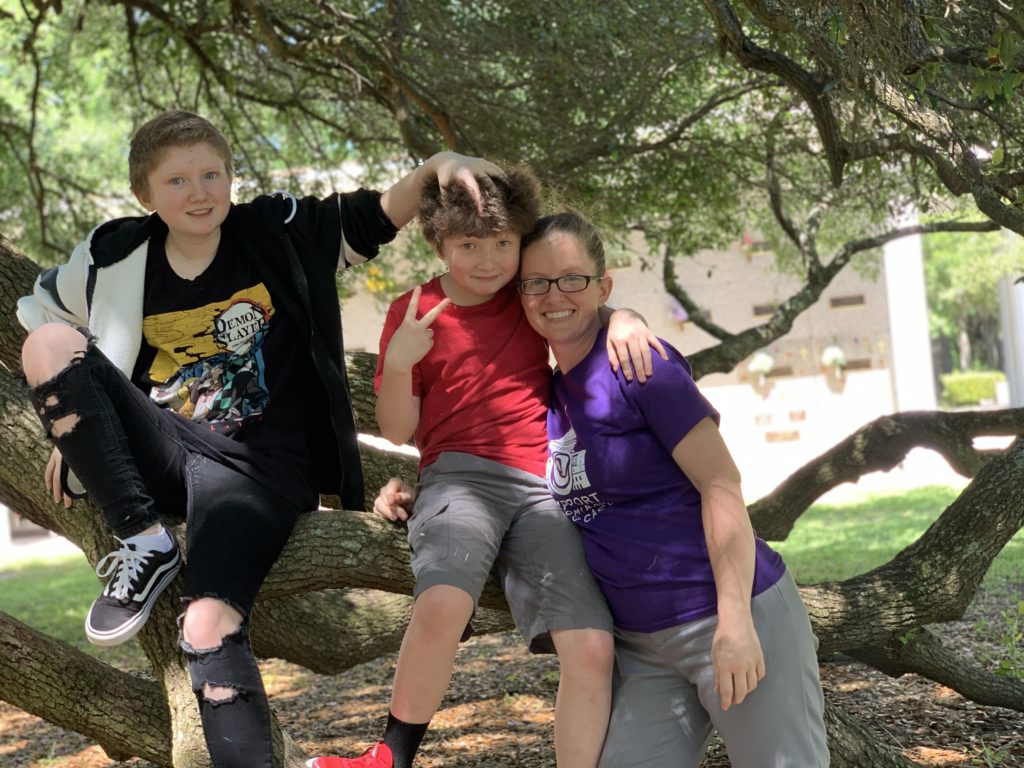
Transitioning to Single Parenting
Since transitioning to single parenting, I’ve learned many things. Honestly, most of it has been how to fail. I’ve come to terms with failure, and it sits all right with me. This was not a conclusion I came to quickly, though. It took a lot of failing and learning to cope with those feelings of failure to understand and embrace it fully. I’ve determined that not getting it right means I know how not to do it next time. It’s building my resiliency and forcing me to embrace my imperfections. Failing allows for self-growth and being aware of my capabilities, strengths, and weaknesses while learning about myself.
My kids are learning about themselves, too. They also have their good and bad days, just as I do. When they have their bad days, I let them have it. I don’t allow them to be hateful or disrespectful to others, but I give them their space. I tell them it’s okay to have big feelings and how to express them healthily.
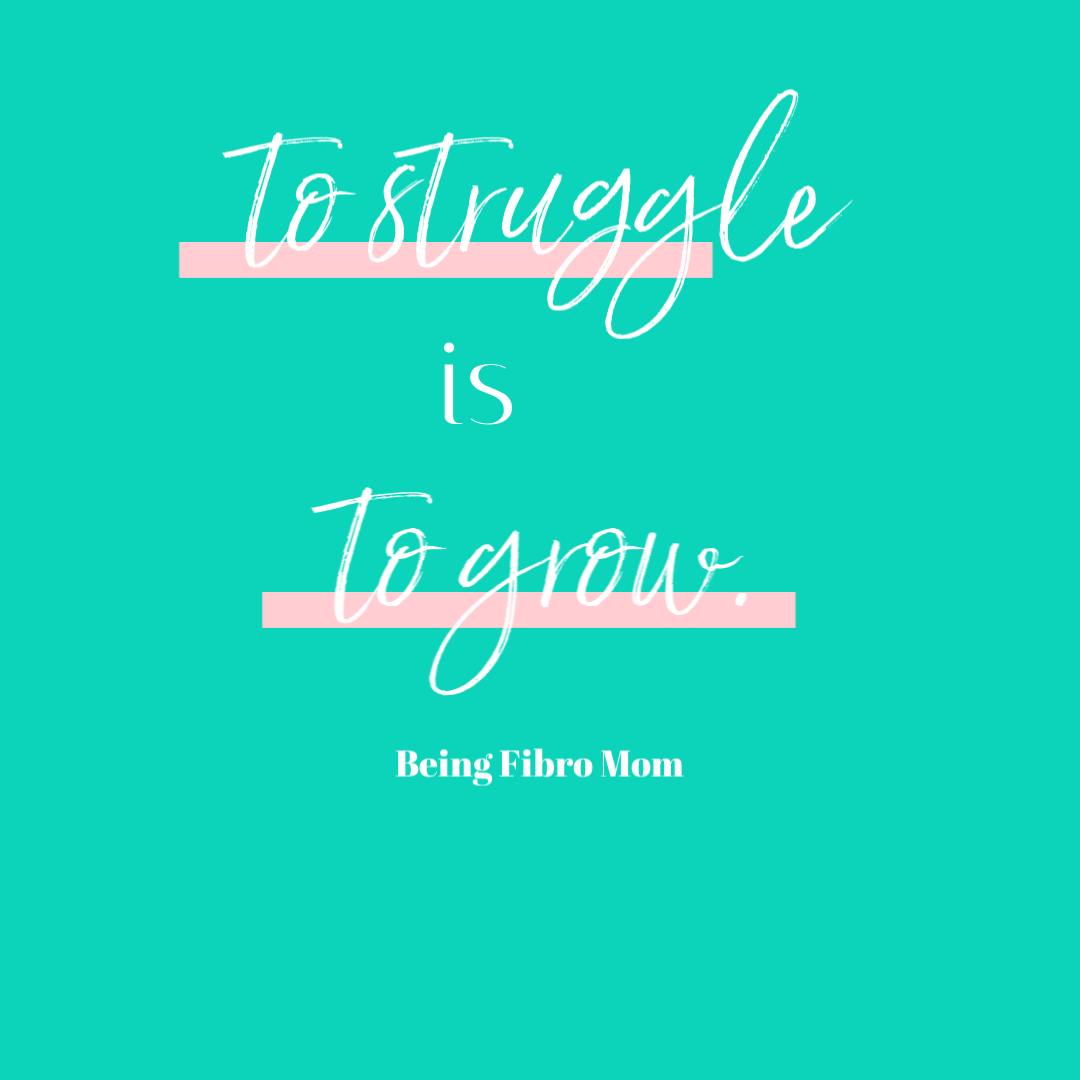
Kids aren’t equipped to express themselves fully like adults. They simply lack the life experience and skills to cope with big feelings such as sadness, anger, or uncertainty. It’s up to us as their parents to help them process those emotions, especially when those emotions are tied to a major life transition such as divorce.
In my kids’ eyes, their dad no longer lives with us. Despite our telling them, the ‘why’ of it isn’t fully understood. Their understanding is limited to the fact that mommy and daddy no longer live together and that dad lives in another home in a different state. Their entire life has been turned around and flipped upside down. It’s understandable to have BIG feelings about it.
Each of them is in therapy to give them a neutral person to talk with—someone who is unattached and unbiased to the situation at home. Therapy gives the kids a safe space to express their thoughts and work through their feelings without the fear of disappointing a parent. It also gives them tools to process their feelings and teaches them how to cope with them.
Like them, I have also started therapy to work through this new phase of my life and to cope with the ‘why’ of my divorce. It’s been hard work to come to terms with past issues which are deep-rooted in my childhood. But it’s also been healing to get to the bottom of it and accept it all.
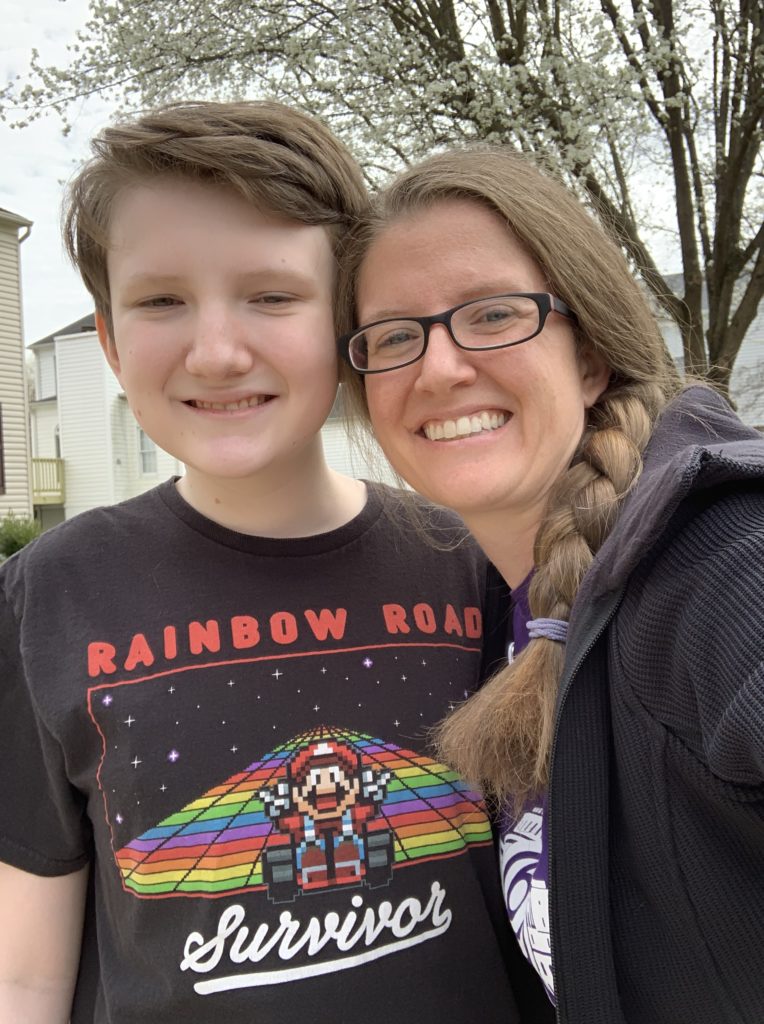
A New (Healthier) Family Dynamic
While learning the ins and outs of this new family dynamic, we are taking on new roles. Before the divorce, the kids helped out around the house but in a smaller capacity. They would clean their rooms daily, vacuum occasionally, and help sort the recycling bins periodically. If something wasn’t done, sometimes it would be addressed, and other times it wasn’t. The weight of chores was light, and the completion of the chores didn’t carry as much concern because there were two parents.
There are no longer two parents, which means double the house chores. When the kids’ chores are not done or not done to completion, the rest of us feel it. This makes them more aware of helping out and allows them to be held more accountable for their chores.
Their willingness to help and take responsibility for their chores has not gone unnoticed. I am grateful to have kids who are taking this huge stride forward in responsibility and appreciative of their acceptance of it. It’s a difficult time for all of us, and each of them needs to know they are appreciated and loved.
Accepting help from others and knowing when to ask for help has also been a learning process. It’s hard to take your limits and know when you need help. But it’s also important to understand that asking for help doesn’t mean you’re weak or incapable. It means you allow others to show their willingness to help because they care and want to support you.
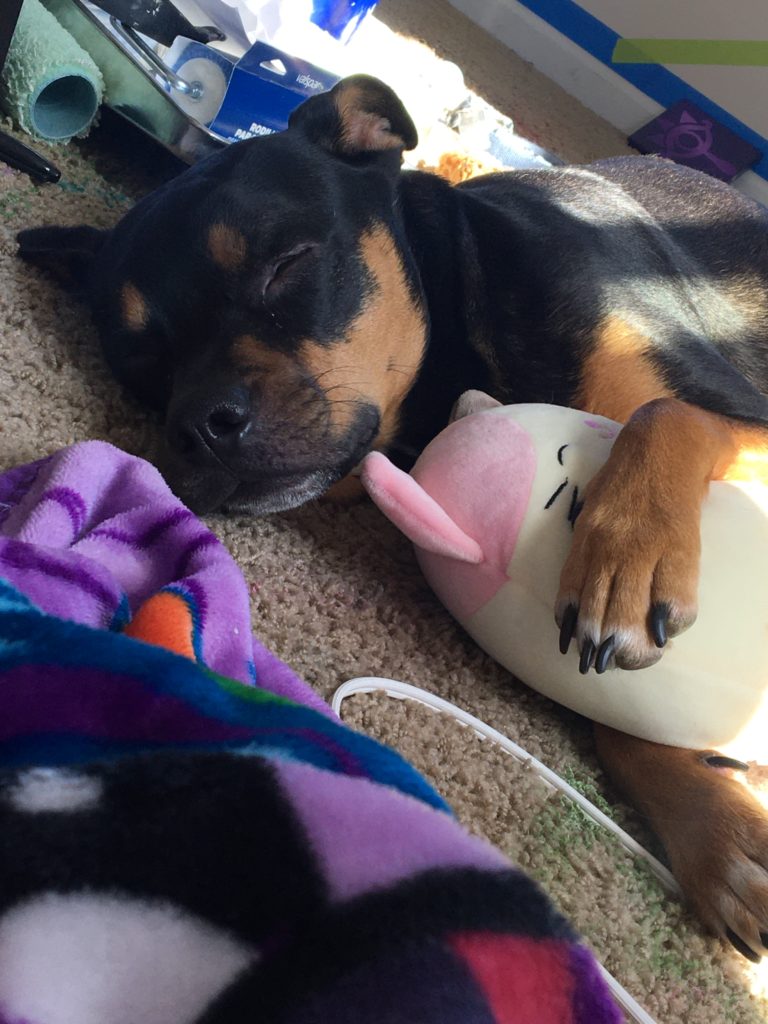
The Only Consistency is Inconsistency
During this family shift, my kids have experienced firsthand what it’s like to receive help and are now more willing to help others. They have a deeper understanding of compassion than they did before. It’s made us humble and has opened our hearts even more to the generosity of others.
I’ve joked that the only consistency in my life is inconsistency. It’s hard to stick to anything with the unpredictability of fibromyalgia. I’ve learned to go with the flow and manage what I have at any moment.
Unfortunately, this flow leaked into the parenting realm in the form of unclear consequences, multiple warnings, and lots of giving in. When I initially separated from my ex-husband, I suffered the consequences of this inconsistency. I realized how it affected my kids and how desperately we needed boundaries for all of us.
Quickly, I learned how to follow through on what I said and stuck to it. No more multiple warnings and no more giving in to their whining. I posted a paper on the wall in the kitchen listing the four levels of consequences (time out, no electronics, grounded to the room for the day, grounded for the week) as a reminder to the kids, but more to myself.
The results have been astounding! Their behavior has vastly improved. There’s no more second-guessing the consequences of actions or being given multiple warnings. This provides a level of stability and accountability for all of us, and it’s comforting on many levels.
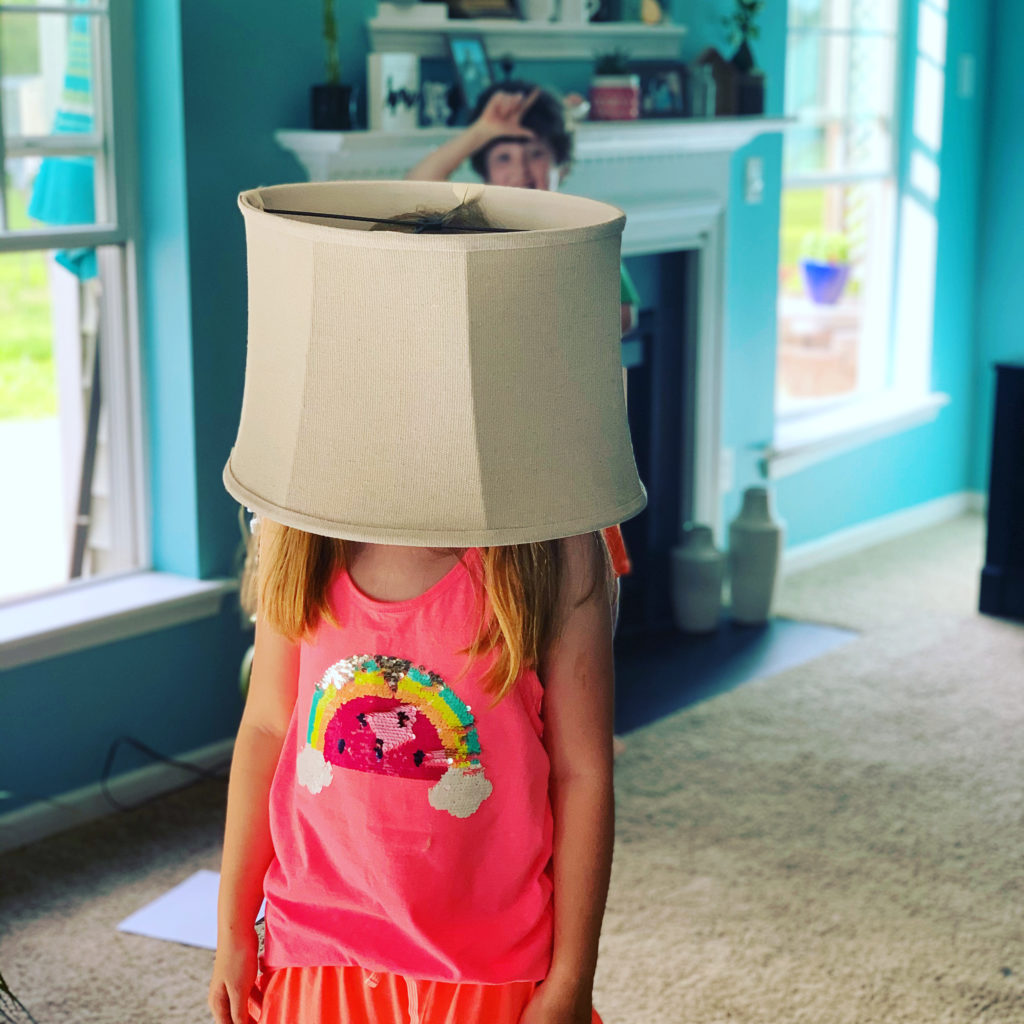
Connecting on an Emotional Level
Significant, steady improvements in our home over the last year have been necessary, but one of the most important changes has been connecting. I’ve been able to communicate with my kids more emotionally than ever as we work through these new changes in life together. We are learning about ourselves and each other. It’s bringing us closer together as we realize we are not alone in this new phase but in it together. It makes healing so much more impactful and meaningful.
We are figuring out how to properly communicate our feelings to one another without sacrificing each other’s feelings or crossing boundaries. Togetherness has never had a more powerful meaning than it does right now. It’s been incredibly inspiring to keep working on these new changes in life with them and seeing us grow through all of it.
This article about single parenting wasn’t about solely sharing our family’s story of transitioning into single parenting but instead looking at the good that’s come of it. Initially, I intended to share tips on transitioning to single parenting, but whenever I sit down to write on a subject, I write what comes to me. I let the writing take over and share what I feel moved to share. And I felt moved to share the emotional side of it. I hope it has connected with you somehow, no matter the season of life you are currently in.
